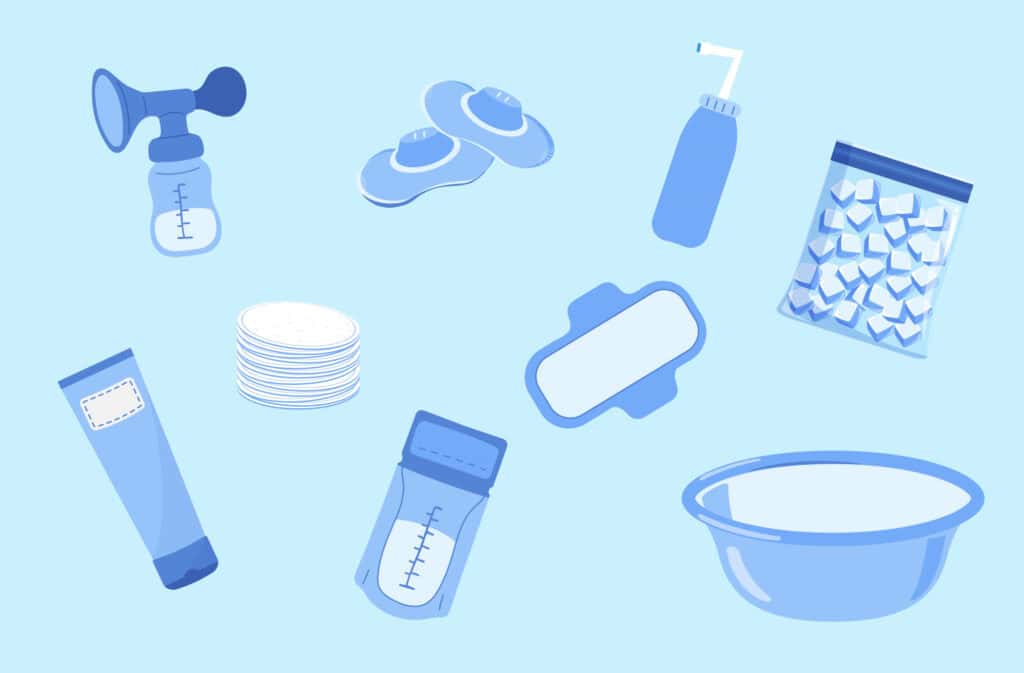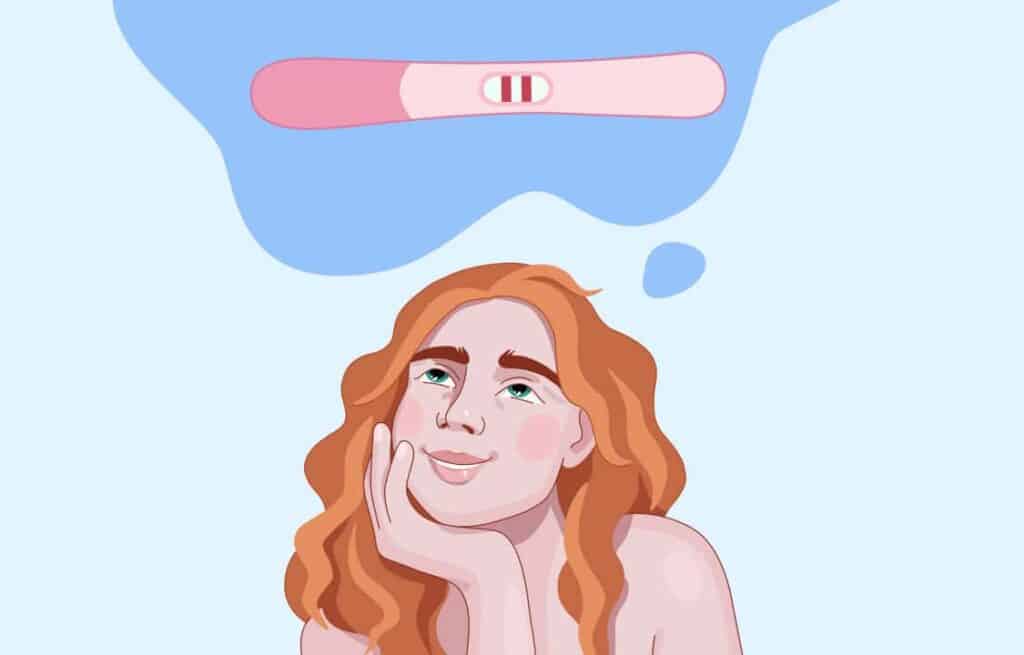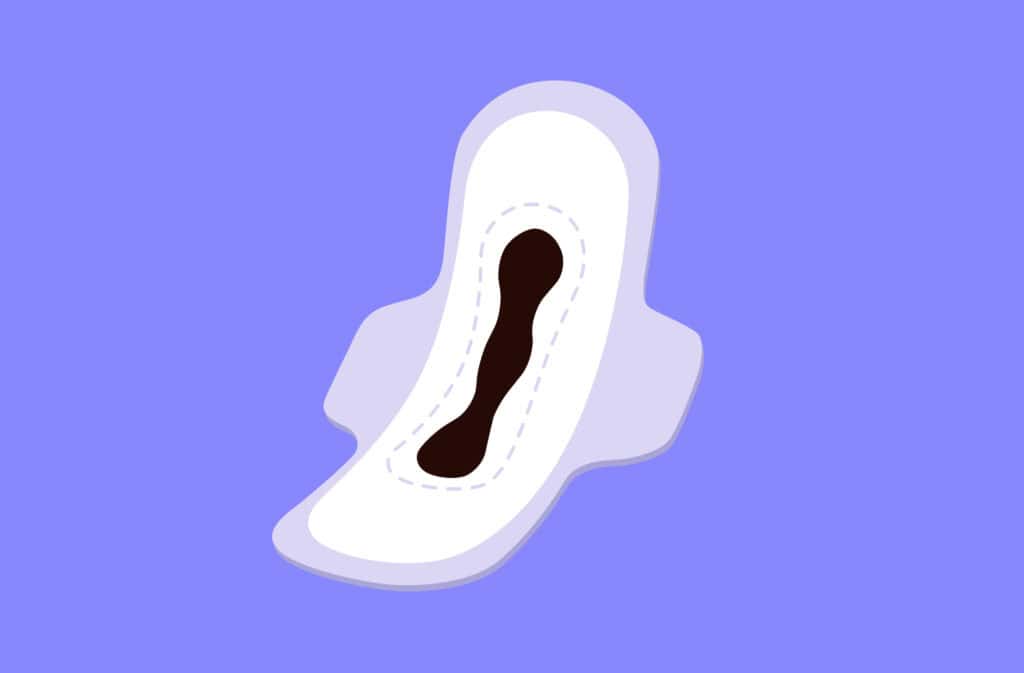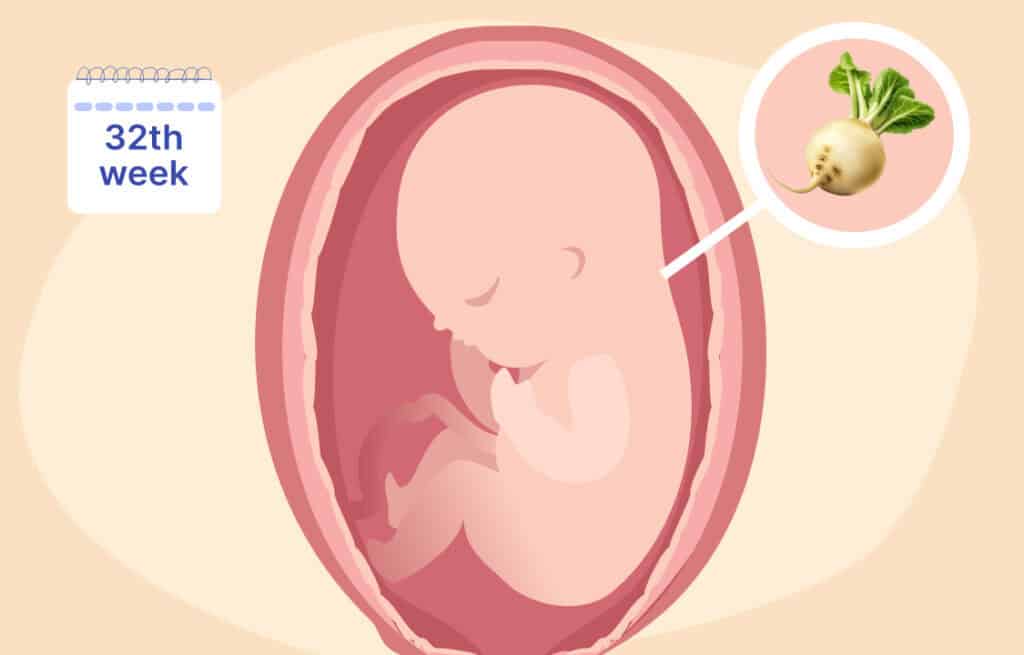Femia > Health Library > Being a mom > Recovering from birth > Postpartum essentials for mom: A complete checklist for recovery
Postpartum essentials for mom: A complete checklist for recovery

- Updated Feb 11, 2025
- Published
CRAFTED BY HUMAN
Crafted by human At Femia, we provide accurate and up-to-date information at every stage of your journey, from trying to conceive, pregnancy and postnatal support. All content is created by a real person based on in-depth research and own professional experience. Femia ensures that you will receive expert advice, strict accuracy and a personalized approach from our authors/medical experts. Learn more about our editorial policy.
FACT CHECKED
Fact checked At Femia Health, we maintain the highest standards of editorial excellence in delivering content focused on helping you conceive, guiding you through pregnancy, and supporting you postpartum. Explore our content review principles to learn how we ensure the accuracy and quality of our health and lifestyle tips for every stage of your journey.
The postpartum period can be exciting, yet it’s also filled with challenges. To be ready for it and make the healing process effective and comfortable, it’s good to prepare some postpartum essentials in advance.
The key categories of items to prepare include:
- Clothing,
- Recovery and hygiene products,
- Breastfeeding supplies,
- Mental support items, and so on.
After you give birth and finally meet your awaited newborn, you’ll step on a new, exciting journey together that might feel overwhelming in the first weeks. There will be many lifestyle adjustments and new things to learn.
One way to reduce unnecessary stress and ease into your new role is to ensure you have all the necessary postpartum supplies for recovery, comfort, and self-care. These supplies should include not only items for physical recovery but also products for suture care (in case of a cesarean section or episiotomy) and pain relief if needed.
In this article, we’ll guide you through the core postpartum essentials for moms you’ll need at the hospital and beyond. After reading, you will have a complete checklist to ensure you have everything necessary for a stress-free postpartum period.
with confidence
Femia offers personalized insights and helps you stay in control
What happens during the postpartum period?
Why you need postpartum essentials
The postpartum period begins soon after labor and typically continues for 6–8 weeks, depending on your individual situation and needs. Traditionally, it’s believed that the end of the postpartum period is marked by the mother’s nearly full return to their pre-pregnancy state.
The postpartum period is pivotal for both mother and baby’s short- and long-term health. Hence, proper postpartum care is essential to ensure proper recovery, hygiene, and comfort.
Knowing that you have everything you might reach for on hand during this time can greatly reduce stress. Planning and preparing all postpartum necessities in advance will give you true relief, making you feel better prepared for labor and weeks beyond. Besides, having everything ready can reduce the bustle and anxiety during the postpartum period, letting you focus on what matters: healing and caring for your baby.
👉Find out more: When is it safe to orgasm after giving birth
Postpartum recovery essentials for body after giving birth
1. Clothing and comfort
You undergo significant physical and emotional changes after giving birth, and your habitual lifestyle will likely change a lot, especially during the first weeks into motherhood. To get through this period with maximum comfort, you will want to choose comfy, loose, breathable clothes, such as:
- Loose tops
- Big t-shirts
- Nursing tops
- Maternity legging
- Loose joggers (preferably high-waisted and with an elasticated waistband)
- Postpartum underwear
- Nursing bras
Clothing like this can perform multiple important functions, including making you feel comfortable despite swelling and sensitivity, providing simple access to breastfeeding, helping your body’s temperature regulation, and also giving you emotional comfort.
2. Recovery and hygiene products
While every labor experience is unique, there are certain physical consequences and limitations that might cause discomfort in your daily life postpartum. Namely, completing your habitual hygiene rituals might get harder during the first weeks after delivery.
To ensure proper hygiene as you heal from delivery, you might want to prepare the following recovery and hygiene products:
- Perineal care (witch hazel pads, peri bottle, sitz bath)
- Maternity pads
- Ice packs for swelling
3. Breastfeeding and lactation supplies
During the first few days after delivery, breastfeeding is an important part of you and your baby getting to know each other. It can be somewhat overwhelming and challenging at first. However, you can prepare for it in advance by getting the following postpartum items for mom:
- Nipple cream
- Nursing pads
- Breast pump
- Milk storage bags
👉Find out more: Can you get pregnant while breastfeeding? Everything you need to know
4. Additional practical items
Apart from postpartum essentials, there are also some extra, often overlooked things that can come in handy. For example:
- Water bottles
- Nutritious snacks
- Cozy blankets
Specialized postpartum care products
The checklist we shared above spans the overall potential needs of new moms, including some of the most important item groups ensure an effective and stress-free healing period. Nevertheless, since every pregnancy and labor is unique, specific postpartum needs for mom can vary greatly, which is why it’s important to personalize this list to your needs, especially when your situation requires specialized care products.
Namely, some specialized care items you may want to include in your new mom’s arsenal include:
- Abdominal binders. Using postpartum belly binders or wraps can provide additional support and stability for your tummy and pelvic floor muscles, which might be weakened after giving birth. Whether to use belly binding or not depends on your physical feelings after labor. However, it might be a necessity in some situations, especially for C-section recovery.
- TENS units. Women who have recently given birth may face certain ongoing postpartum symptoms, such as uterine contraction, vaginal soreness, pain during breastfeeding, and others. TENS (transcutaneous electrical nerve stimulation) has been proven to be a powerful relief for postpartum pain. So, TENS units might be among other postpartum essentials for new moms who experience a lot of pain or contractions.
- Pre-packaged postpartum care kits. For those who find it hard to shop for postpartum supplies or who aren’t sure which items are worth buying, there are pre-packaged kits that already contain all the essentials. These kits typically contain the most crucial and frequently needed care products, including specialized underwear, pads, nipple products, peri wash bottles, etc. Most importantly, it’s possible to personalize these kits to your specific situation, depending on whether you had a C-section or have other unique needs.
👉Find out more: Postpartum hemorrhoids: Causes, treatment, and tips for healing after childbirth
Post-Cesarean section care and perineal suture care
Women recovering from a cesarean section or a perineal suture after childbirth need specialized products to support healing and comfort. Key items include:
- Silicone scar strips: These help reduce scarring after a cesarean section by creating a protective barrier and retaining moisture. This promotes uniform tissue healing, making the scar less noticeable.
- Compression stockings: Essential for improving blood circulation and reducing the risk of blood clots, such as deep vein thrombosis (DVT), after a cesarean section. They also help minimize swelling.
- Cooling compresses or ice packs: These are useful for reducing swelling and numbing the suture area after surgery. Ice can ease pain and decrease inflammation in the first few days post-C-section.
- Peri-hygiene bottle: This bottle is helpful for maintaining perineal hygiene, especially if the perineum was damaged during childbirth. It provides a gentle way to clean the area without causing discomfort.
These products aid in both physical recovery and pain relief, making the postpartum period more manageable.
Mental health and emotional recovery essentials for new moms
The emotional and mental recovery after birth is just as important as the physical recovery. New mothers often face a range of emotional changes, from the joys of motherhood to postpartum mood swings and potential anxiety. These essentials can help support mental health during this time.
Supportive counseling
Speaking with a therapist or counselor can provide emotional support and help process the overwhelming feelings that come with new motherhood. Therapy helps with stress, anxiety, and potential postpartum depression.
Self-care routine
Bath salts, soothing lotions, and aromatherapy oils can provide relaxation and stress relief. Taking time for self-care is important for mental well-being during the recovery period.
Postpartum doula
A postpartum doula can provide in-home support by assisting with newborn care and offering emotional support to mothers during the early weeks. They can also offer guidance on breastfeeding and bonding with the baby.
👉Find out more: Breastfeeding and sex: Navigating changes
Journaling or relaxation apps
Writing down your thoughts and emotions can help you process your experiences. Additionally, using mindfulness or relaxation apps can help reduce stress and promote emotional recovery.
Social support
Building a support network of family and friends is key to mental health recovery. This can include help with baby care, emotional support, and shared time for activities outside of motherhood.
with confidence
Femia offers personalized insights and helps you stay in control
Postpartum essentials for baby care
After birth, you’ll need a variety of essentials to take care of your newborn. These items help ensure your baby is comfortable, safe, and well cared for in the early weeks.
1. Diapers and wipes
Newborns go through many diapers a day, and having both disposable and cloth options is important. Wipes help with cleaning during diaper changes.
2. Baby clothes
Soft, comfortable baby clothes are essential for keeping your newborn warm and cozy. Include onesies, sleepers, hats, and socks to ensure your baby is properly dressed.
3. Baby carrier or sling
A baby carrier allows you to keep your baby close while freeing up your hands. It’s perfect for bonding while allowing you to go about your daily activities.
4. Swaddle blankets
Swaddling provides a sense of security and warmth for your newborn, mimicking the tightness of the womb. These blankets can help soothe your baby to sleep.
5. Baby monitor
A baby monitor allows you to keep an eye on your baby from another room, giving you peace of mind when your baby is napping or sleeping.
6. Feeding supplies
Whether you are breastfeeding or bottle-feeding, having essentials like bottles, nipples, a breast pump, and nursing pads is necessary for feeding your baby.
7. Infant thermometer
Having an accurate thermometer for your newborn is essential for monitoring their temperature. It’s crucial in case your baby runs a fever or becomes ill.
8. Baby bath supplies
A gentle baby bath, washcloths, and baby shampoo are necessary for keeping your baby clean and comfortable during bath time.
Tips for preparing postpartum essentials in advance
Most postpartum care products will come in handy soon after you deliver your baby. So, if you don’t want to stress out about it after you arrive at home, you should have everything ready well in advance.
A good rule of thumb is to stock up on all basic products you’ll need at the beginning of your third trimester. Doing this around 2–3 weeks before your expected due date should give you enough time to get everything ready and ensure you don’t miss anything.
👉Find out more: Understanding postpartum dizziness: Causes, duration and when to seek help
Considering using checklists to your benefit
In addition to preparing early, consider making the most out of checklists. Checklists are a kind of cognitive aid that’s both effective and easy to implement. They can be used to guide task performance in any field and are incredibly helpful when stocking up on your postpartum basics.
To use it to your benefit, download a detailed postpartum essentials list for mom—for example, the one we shared with you here—print it out, and start shopping for care products according to the list, crossing out everything you have prepared. This can help you mitigate the stress and anxiety associated with your pre-labor preparation and also give you a sense of control and readiness.
Stock up on recurring essentials with subscription services
If you want to ensure even more comfort and convenience during your postpartum period, it won’t hurt to think about some recurring items that get used up too fast and need to be purchased again regularly. It can be helpful to leverage subscription services for such items. Brands like Cater to Mom, Bump Boxes, and similar offer convenient solutions to effective recovery. These services allow you to specify your type of birth, feeding plan, and other specs, then receive monthly boxes with healthcare and recovery goods based on your needs.
Questions from the Femia community
When should I start gathering my postpartum essentials?
The general rule of thumb is to gather all essentials by the third trimester, and keep them ready for the time you head to the hospital and give birth. This can help your preparation be stress-free and ensure you don’t miss something out of sight in a rush.
How long do I need postpartum supplies?
Most of these essentials are only needed for about six weeks after giving birth. However, some items might come in handy in the longer run; for example, nursing bras might be used for the entire breastfeeding period.
Do I need different postpartum items for a C-section recovery?
Yes. Since a C-section implies a surgical intervention, it typically has different recovery time and demands. Some specific products you may need include abdominal binders, silicone strips, compression underwear and socks, ice packs, peri bottles, and scar care products.
What can I do to speed up recovery?
To speed up recovery after childbirth, it’s important to prioritize rest, hydration, and nutrition. Gentle movement like light walking and pelvic floor exercises (with approval from your healthcare provider) can help circulation and promote healing. Managing stress and asking for help with baby care can also ensure emotional recovery.
What are must-haves for nursing moms?
Must-haves for nursing moms include comfortable nursing bras, nipple cream, and a breast pump. These items help ease breastfeeding discomfort and ensure you have everything needed for a successful nursing experience. A nursing pillow can also provide support during feeding, making the process more comfortable for both mom and baby.
The bottom line
The postpartum period is all about meeting your newborn and getting to know each other. This time is typically filled with many exciting explorations and changes. However, it’s often accompanied by certain stress of getting used to your new role, not to mention the recovery from childbirth.Being proactive and preparing for this period in advance is a good way to minimize stress and feel ready for your first weeks of motherhood.
A big part of the preparation includes stocking up on various postpartum essentials that can make your and your baby’s postpartum journey more comfortable and enjoyable.After reading this article, you have a comprehensive postpartum essentials list for mom that can be used as a checklist to prepare for this new chapter of your life. Don’t hesitate to customize the list based on your personal recovery needs with a focus on comfort, healing, and self-care.
References
- Lopez-Gonzalez, DM, and AK Kopparapu. “Postpartum Care of the New Mother.” StatPearls Publishing, Jan. 2024, https://www.ncbi.nlm.nih.gov/books/NBK565875/#:~:text=The%20postpartum%20period%20begins%20soon,a%20woman%20and%20her%20newborn.
- Penn Medicine, Lancaster General Health. “7 Items to Help You Recover from a Vaginal Delivery.” Lancaster General Health, https://www.lancastergeneralhealth.org/health-hub-home/motherhood/fourth-trimester/7-items-to-help-you-recover-from-a-vaginal-delivery.
- The National Health Service (NHS). “Breastfeeding: The First Few Days.” NHS, 1 Feb. 2023, https://www.nhs.uk/conditions/baby/breastfeeding-and-bottle-feeding/breastfeeding/the-first-few-days/.
- Rai, S., A. Pathak, and I. Sharma. “Postpartum Psychiatric Disorders: Early Diagnosis and Management.” Indian Journal of Psychiatry, vol. 57, no. 6, Jul. 2015, https://www.ncbi.nlm.nih.gov/pmc/articles/PMC4539865/.
- Cleveland Clinic. “Postpartum Belly Wraps: Purpose, Types, Benefits & Risks.” Cleveland Clinic, 11 Jul. 2022, https://health.clevelandclinic.org/postpartum-belly-wrap.
- de Sousa, L., F.A. Gomes-Sponholz, and A.M. Nakano. “Transcutaneous Electrical Nerve Stimulation for the Relief of Post-Partum Uterine Contraction Pain during Breast-Feeding: A Randomized Clinical Trial.” Journal of Obstetrics and Gynaecology Research, May 2014, https://pubmed.ncbi.nlm.nih.gov/24750301/.
- Alfred, M., L.H. Barg-Walkow, J.R. Keebler, and A. Chaparro. “Checking All the Boxes: A Checklist for When and How to Use Checklists Effectively.” BMJ Quality & Safety, 19 Sep. 2024, https://pubmed.ncbi.nlm.nih.gov/38697804/.

Did you know there are some positive signs after embryo transfer that can indicate successful implantation before your pregnancy confirmation test? Let’s dive deep.

Wondering why your period blood is black? Learn about common causes, when it’s normal, and when you should visit a trusted healthcare provider in our comprehensive guide to black period blood.

At 32 weeks pregnant, your baby is growing and nearing full-term readiness. Explore symptoms, labor prep, and preemie survival rates.

